Jerusalem | Paul Dean | Interview
Jerusalem was a five-piece hard rock band that only released one album in 1972. It was produced by Ian Gillan of Deep Purple. It’s a masterpiece of hard rock.
“People either loved us or hated us, no middle ground.”
When and how was Jerusalem formed?
Paul Dean: In 1967 when Ray and I were 16 and still at school we went to see John Mayall and the Bluesbreakers and were absolutely blown away with a form of music we had never heard before. The next day we decided to form a band along with another friend Chris Skelcher. None of us had ever played an instrument before, Ray took drums, Chris guitar and I took bass and vocals.
None of us had any major influences, so we actually learnt how to play as we went along. I started writing as we decided we didn’t want to do any covers and liked the idea of creating something of our own that was a bit different. We practised at every opportunity and did part time and holiday jobs to pay for equipment. Our only focus was the band.
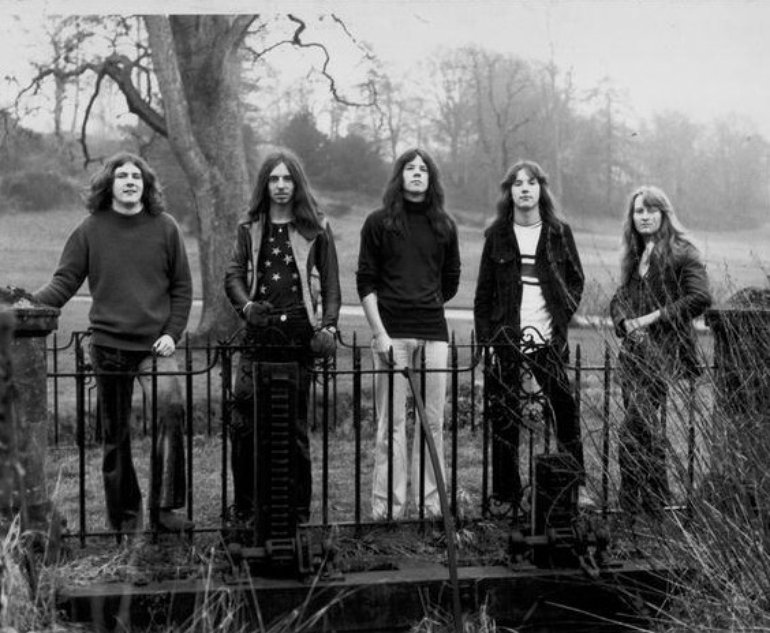
Were you or other band members in any other bands?
No, none of us had ever touched an instrument before or had done anything musical. Even when Ray and I brought in Bill, Phil, Bob and Lynden at different times, none of them had actually been in another proper band. All performing virgins. The first recording we ever did was when Ian brought Roger Glover to Salisbury to do some recording on Rogers newly acquired Revox 2 track. Don’t know what happened to the tapes. Phil was the singer at this time.
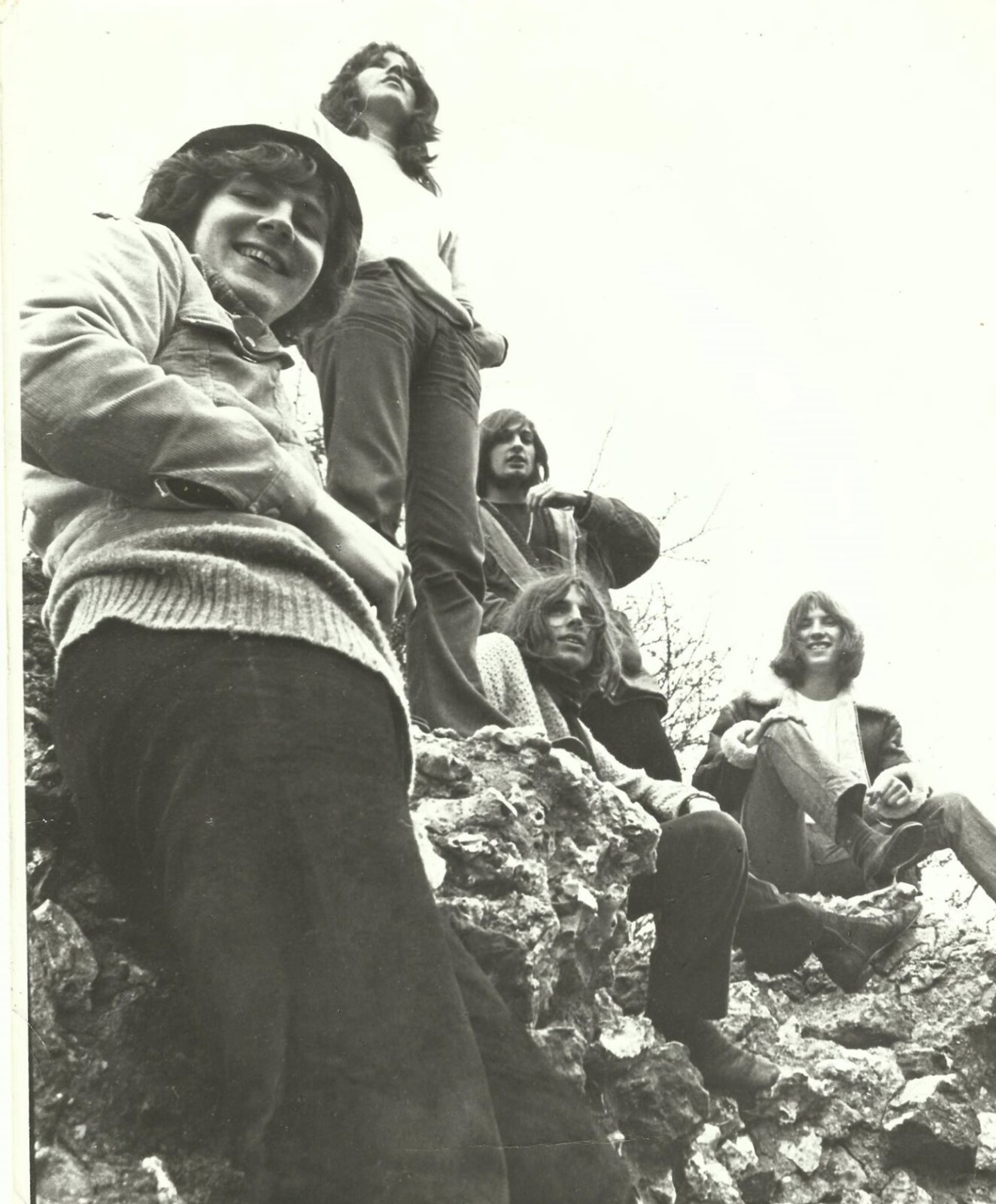
“We literally had 2 days to put something together.”
In 1972 you released ‘Kamikaze Moth’/’Frustration’.
Deram (Decca) contacted me and decided they wanted a single, but not something off the album. We literally had 2 days to put something together. I put a song together and got Lynden to write some lyrics that afternoon at my mother’s house. We then went to Decca’s studio in London two days later after hours of practise and recorded it within a few hours.
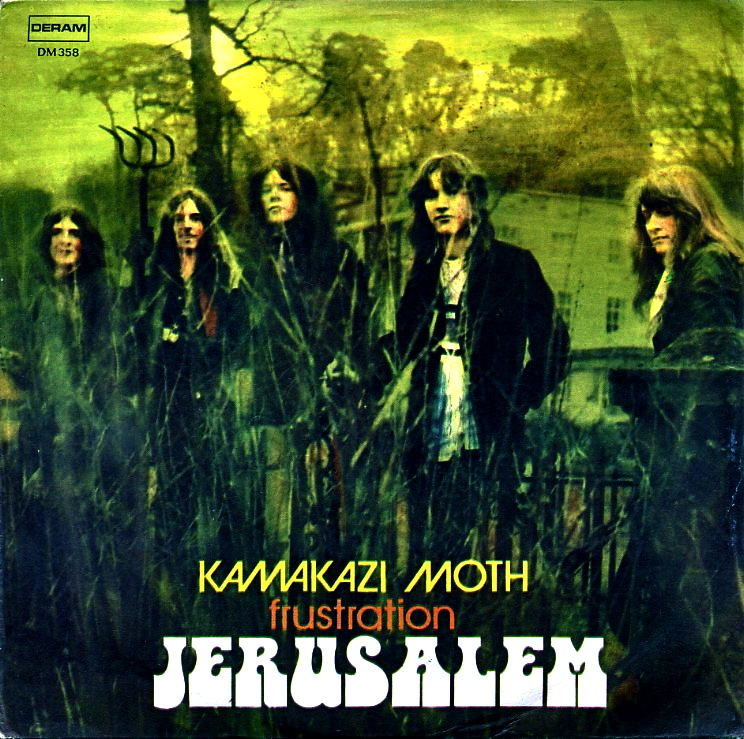
We camped out at Ian’s [Gillan] house in Pangbourne and traveled up and down to London every day.
Then you started to record an album?
The album was actually finished already, that’s why there was a panic about a single. The album took about 2 weeks in total, recording, mixing and mastering. It was an exciting time for all of us, our first real recording session and Ian’s first production. We camped out at Ian’s house in Pangbourne and traveled up and down to London every day. Each day we started early afternoon and finished in the early hours of the morning. Bands become nocturnal creatures, so always better to record late in the day. It was a great time, hard work, but also really good fun. A great time was had by all.

Ian Gillan is listed as producer. How did you get in contact with him?
He was an old friend of my sister Zoe. She brought him home one night to stay at our mother’s house during a Deep Purple tour and we got talking. Played him the first Black Sabbath album, which he liked. Zoe was kind of managing us in those days and a few months later Ian asked if he could have a listen to us.
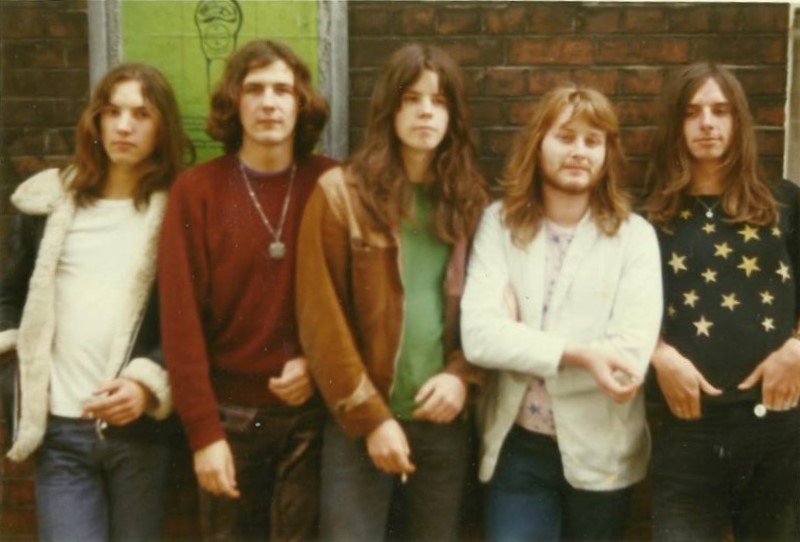
He liked something about what he heard and asked me if it was okay for him to become involved. The band had no problem with this obviously and neither did Zoe. He then set up management and publishing companies for us, Pussy Enterprises & Pussy Music. Then he got an Agency deal with NEMS and so everything began to move ahead at speed.
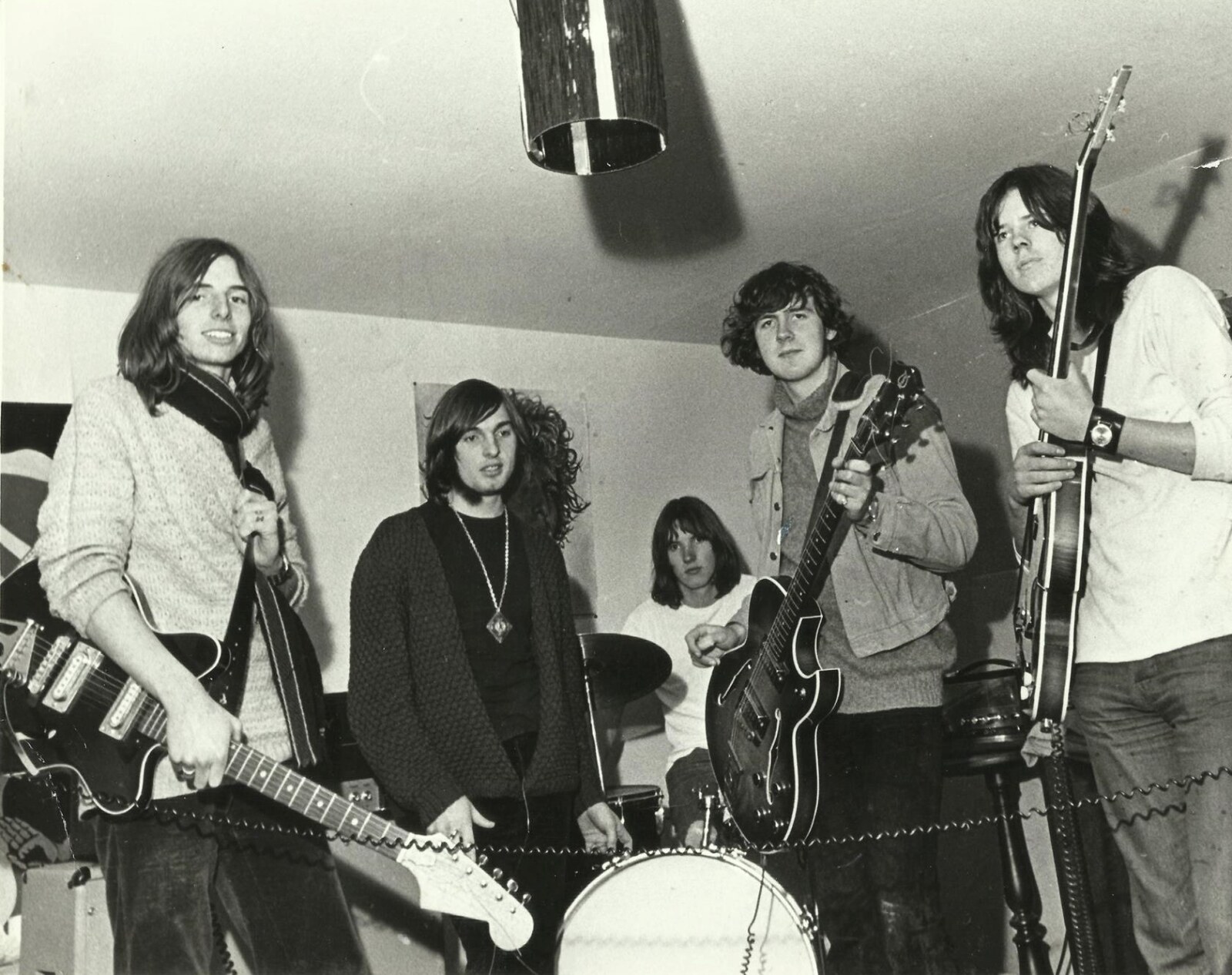
You were one of the heaviest bands around.
I have been asked this question so many times, but there is no simple answer. Ray and I had very wide tastes in what we listened to, but enjoyed playing loud and powerfully. There were no major influences, it was just the way I wrote at the time and the way Ray and I liked to play.
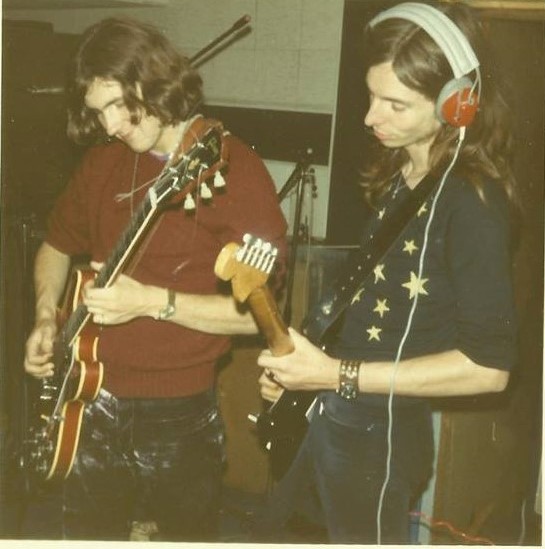
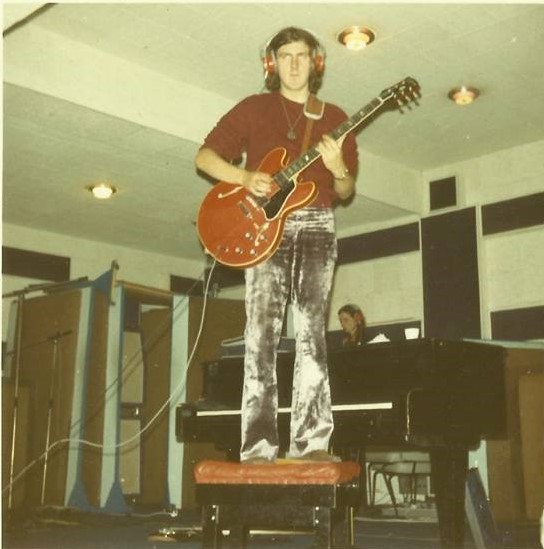
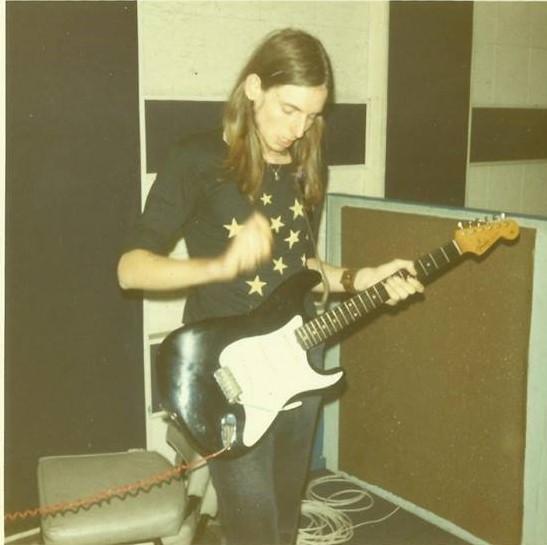
We were also quite adamant about trying to sound a bit different. We had no rules, if it sounded right to us, we did it and would not compromise in any way. People either loved us or hated us, no middle ground. Basically we had a sound that would take years to gather momentum. NWOBM and bands like Metallica were not to appear for a few more years.
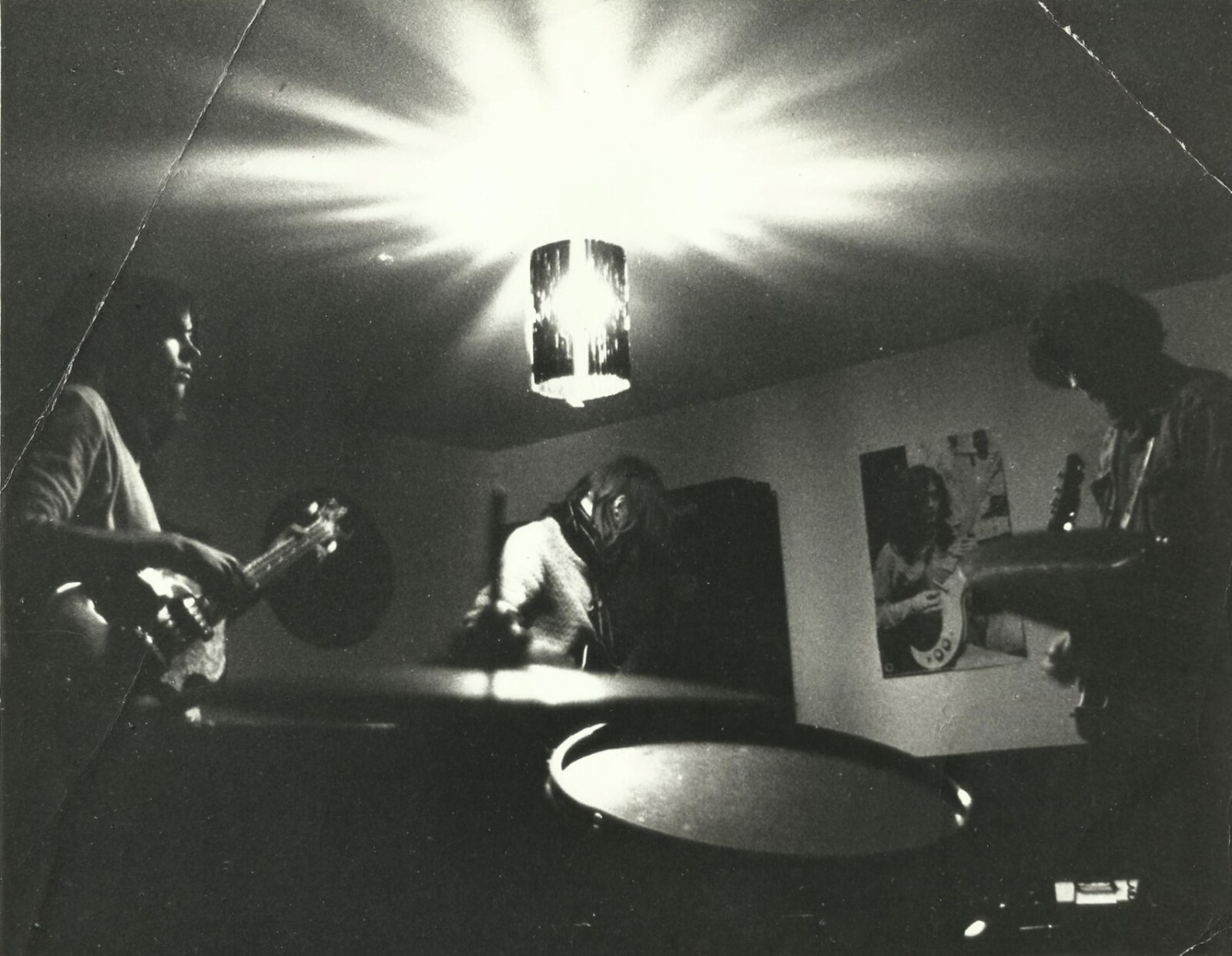
What about the cover design?
Yes, it is now considered a great cover. Bob Cooke came up with the idea and painted it (think his original is an oil painting). It is not meant to be religious in any way whatsoever, just something powerful that implies fighting and reaching out for your future, whatever it may be. Nothing comes to you in this life, you have to get out there and make waves!
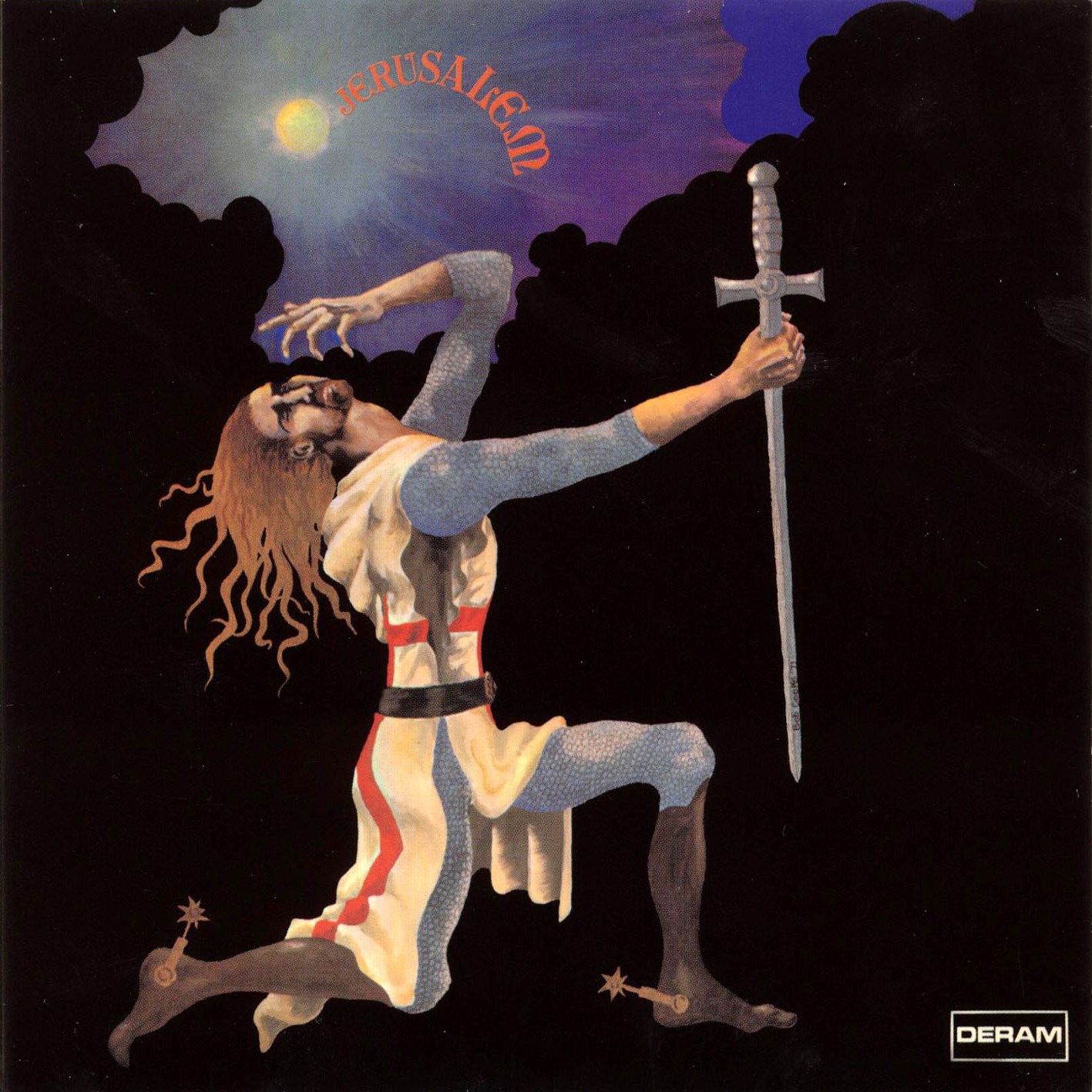
How many copies were pressed?
Initially it sold well in the UK, Germany and Japan. From what I recollect, it sold 12,000 in the first few days. It then rippled out to many other regions from Scandinavia to South Africa. It was never officially released in the USA or Australia.
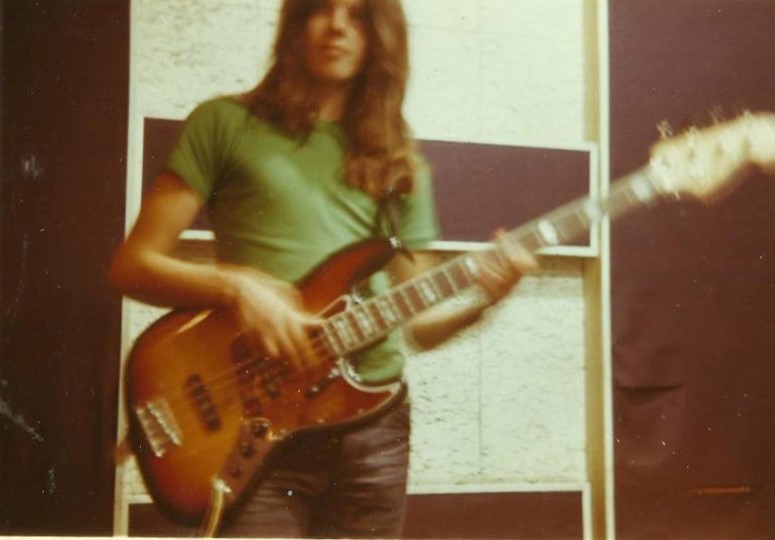
Over the years it became a cult album/band and there were many pirate versions, which is why I did a remastered reissue plus extra tracks with Rockadrome Records in 2009 on CD worldwide (first official release in the USA). Jerusalem is now bigger than it has ever been across all age groups and continues to grow as the word spreads and people discover something that existed ‘before its time’. Because of the success of the reissue and numerous requests, Rockadrome this week (March 2011) are releasing the first vinyl reissue for 39 years!
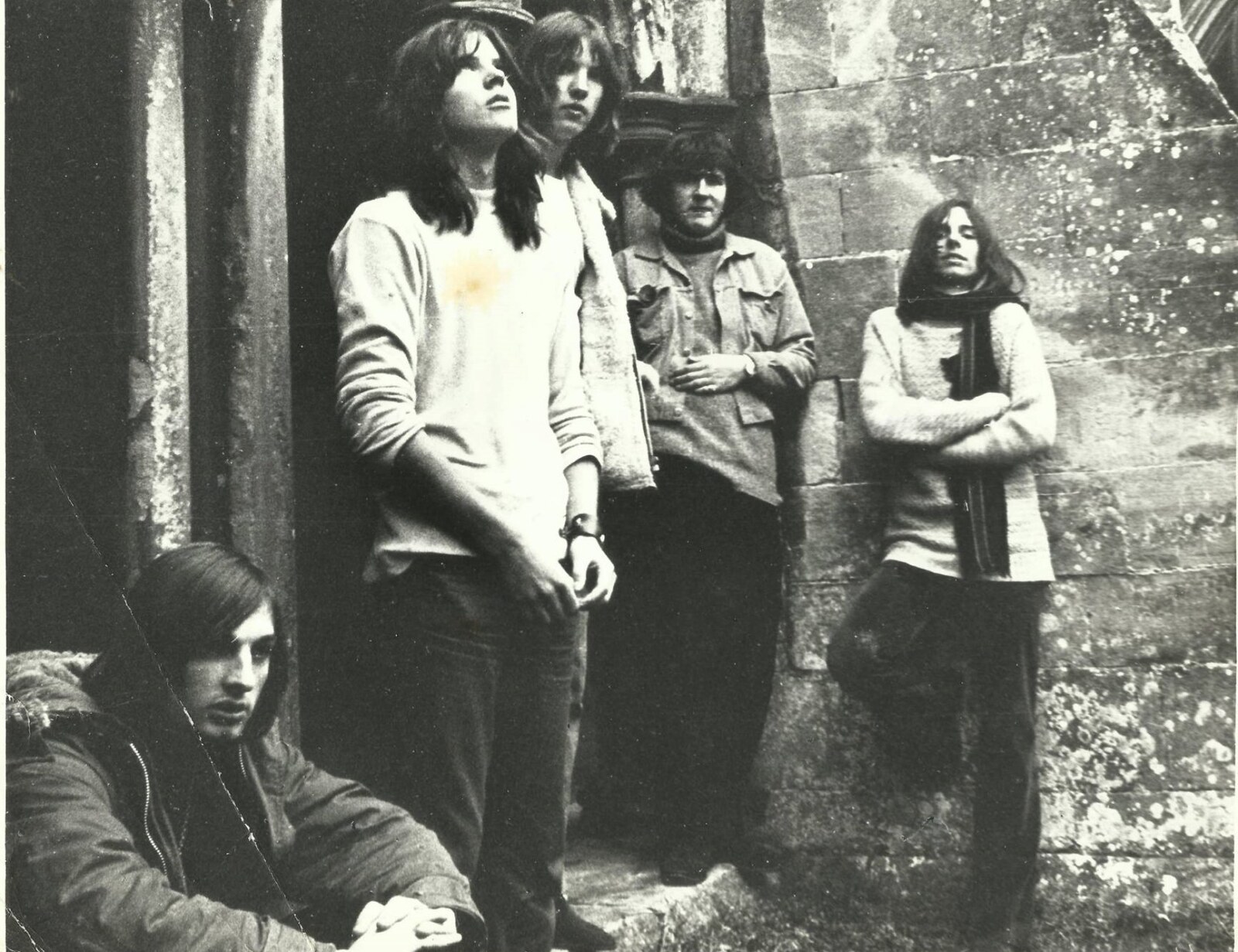
How far was the band’s touring territory? I know you played with Black Sabbath, Uriah Heep…
Our main areas were the UK and Germany plus some major Rock Festivals in Europe. We shared the stage with most of the bands of the time, many of whom are now legends. The day we got signed to Deram we were supporting Status Quo at the Red Lion, Leytonstone. Ian had just invested in some brand new Marshall 200 watt stacks for us all coloured purple.
Status Quo arrived and began to take the piss a bit as they didn’t know who the hell we were. Luckily, Ian then appeared and he was an old mate of Quo, so all turned out ok in the end and we all had a great drinking session at the end of the night. It turned out to be a great gig for both bands.
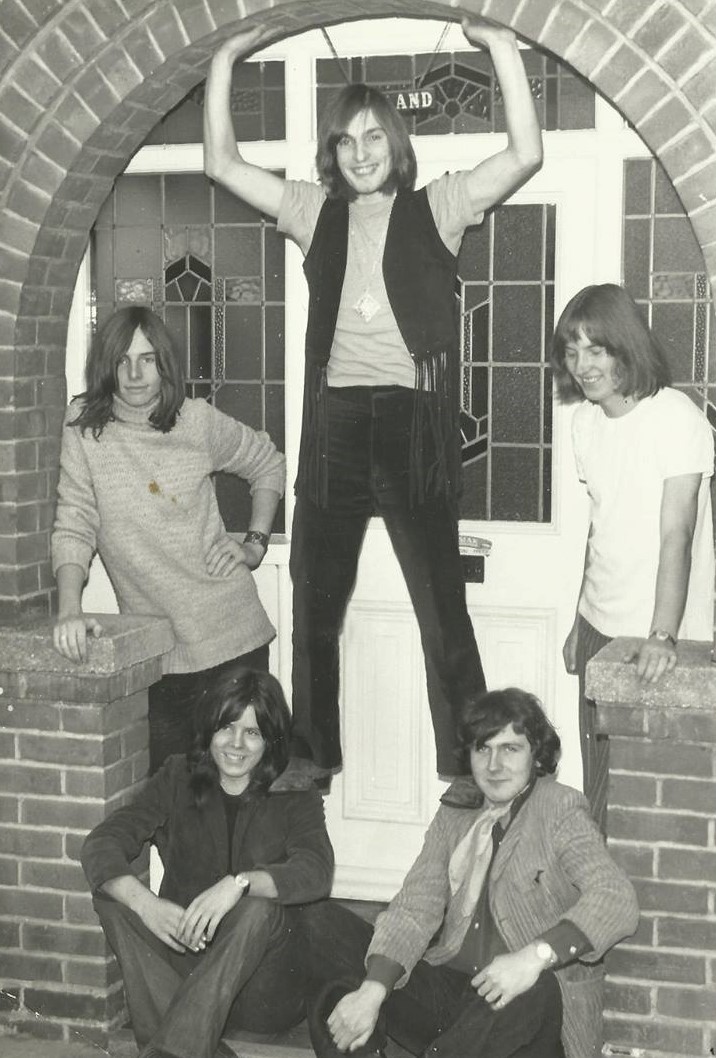
Did you ever appeared on TV?
No, except when we played a Rock Festival in Vienna, Austria with many top bands, Deep Purple, Black Sabbath, Fleetwood Mac, Rod Stewart… For some reason Austrian TV news decided to show us playing on their news programme. Which turned out to be great for us in Europe, as we were totally unknown at that time.
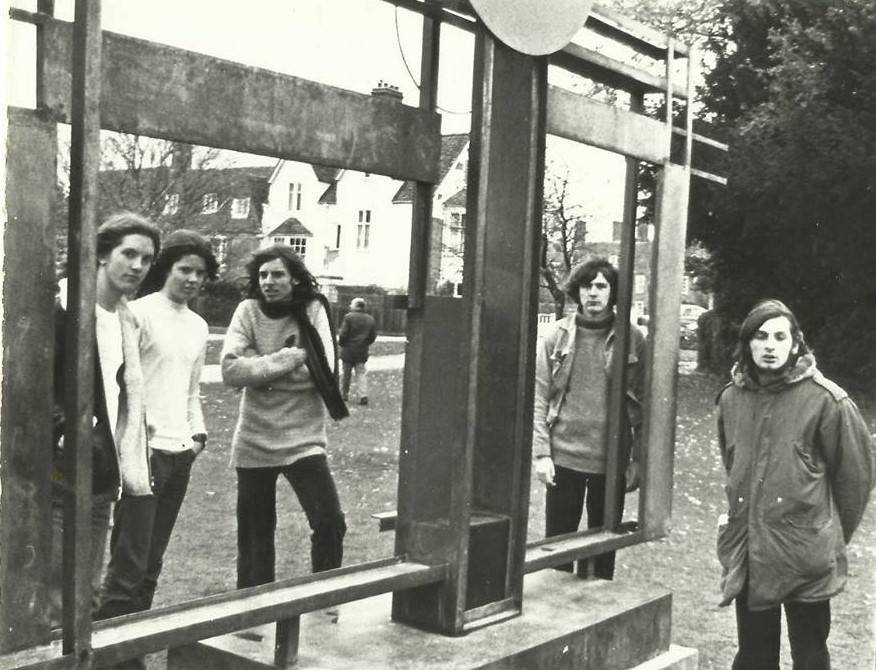
What followed? Is there any unreleased material of Jerusalem?
No, there is no more unreleased Jerusalem accept if those missing Roger Glover tapes turn up! This is taken from the booklet in the forthcoming release of the never before released Pussy album on Rockadrome Records (due out early 2011) and explains a bit about why Ray and I disbanded Jerusalem…
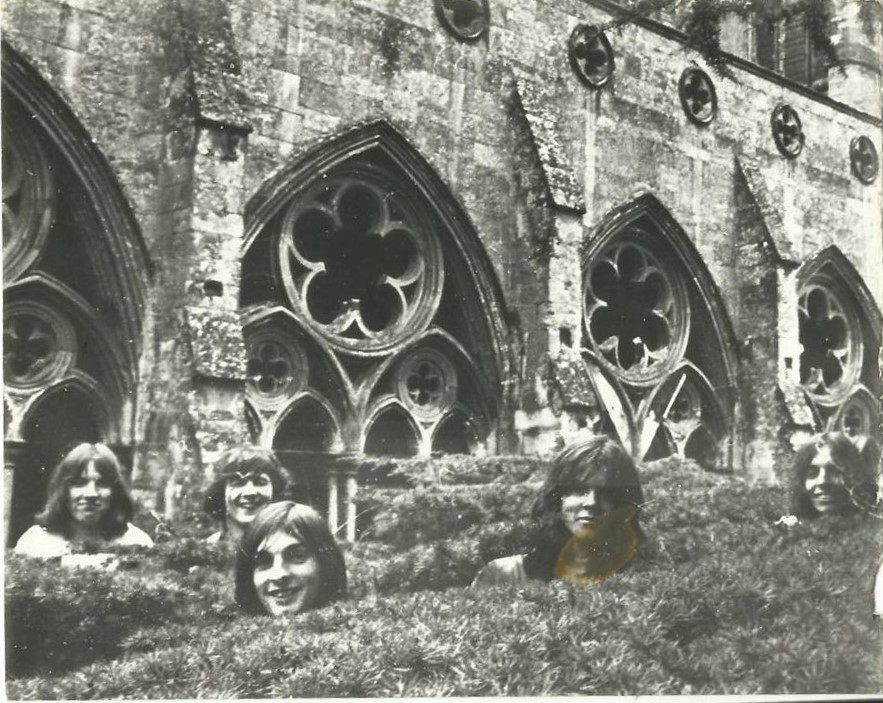
“To Paul and Ray, Jerusalem was about rock in its purest and most basic state. Lynden and Bill were evolving and wanted to move in a more polished and progressive direction. Bob at that time just enjoyed playing. The Rock scene was exploding in so many directions within a very short period, from the Zeppelin, Purple, Sabbath to Pink Floyd, Genesis, Yes, etc. These bands themselves changed overtime and experimented in different directions, some of them returning to their roots many years later. Studio production was advancing in leaps and bounds. Paul and Ray felt that they had made their statement and didn’t want Jerusalem forced into areas created by peer pressure and the accountants and lawyers who were beginning to take over and run the music business, based purely on commercial terms. Luckily, up to this point in time, most of the Record/Music Industry was run by ex-musicians and people with some understanding of music and the vision necessary to take gambles. Without these pathfinders many of the most successful bands of the 60’s and 70’s would never have been given a chance. After discussions with Ian and Sam everyone agreed that it was a good time to end, as to carry on would lead to compromise and changes which Paul and Ray decided would dilute and alter what Jerusalem was all about. They could have changed the line-up and continued as Jerusalem, but what Jerusalem had created was too important to both of them to merely use as a ladder for their next evolution. They decided to create something different once again, which was to become the Pussy band.
Early 70’s rock band Pussy from Salisbury, UK, was managed and produced by Ian Gillan of Deep Purple. Paul Dean and Ray Sparrow formed Pussy along with Bob Cooke after disbanding cult rock band Jerusalem. They made the decision not to continue with the name Jerusalem out of respect for what Jerusalem was all about at that time in musical history, after all Jerusalem was a one-off moment in time creation and could never be recreated. Although the musical direction of Pussy was very different to Jerusalem, which is surprising as Paul was the main writer for both bands (although his liking for riffs is still prominent in places), they continued to keep that raw, no rules edge which set them apart from many of the bands of the period. At this time it was very fashionable to write very long songs and use the full repertoire of the latest studio equipment, but Pussy did the opposite, so all recordings were around single length and recorded virtually live in the studio. Very much a ‘wham bam thank you mam’ type impact. Paul has actually said that Pussy was a kind of ‘kickass’ to the way the music business was going in the sense that Record Companies were beginning to be run by accountants and lawyers and thus the control was changing to the extent that the business was telling the artists what they should do. Creativity and trying to be different were no longer acceptable if you wanted the support of the ‘Business’.”

How did you decide to use the name “Jerusalem” and “Pussy”?
Jerusalem – Absolutely nothing to do with religion. It was actually the only piece of music I liked during compulsory school assemblies, it had a bit of balls and passion about it (poem written by William Blake and Hubert Parry the music) plus it is an incredibly strong sounding word with many connotations outside of religion. Think the music was first performed in 1916 to support the Votes for Women campaign. There is a line in the piece of music ‘Till we have built Jerusalem on England’s green and pleasant land’. It kind of sums up the ideals of those people throughout the World who continue to fight for freedom, democracy and human rights for everyone everywhere in the World. To me Jerusalem stands for the vision and hope of the millions who are still oppressed throughout the World by those dictators who use politics, cultism, religion and fear to subjugate and fool the people. E.g. Iran, North Korea, Zimbabwe, Burma and Tibet to name only a few – (taken from my interview with Sebastion Zwab).
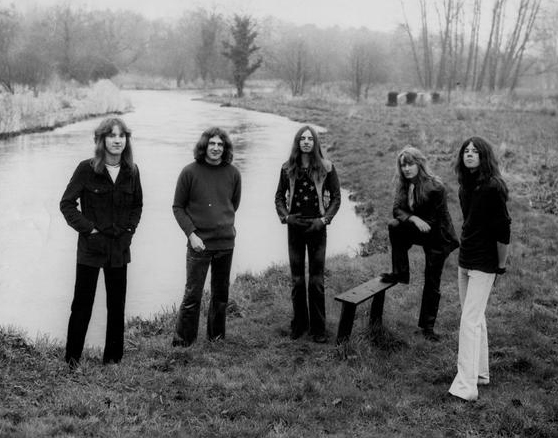
Pussy – simply because it’s a great sounding word with many connotations. Can mean many different things to many different people. Always gets a reaction, which is what you need in a name. Ian’s management and publishing companies were called Pussy Enterprises and Pussy Music, so it was an obvious decision.
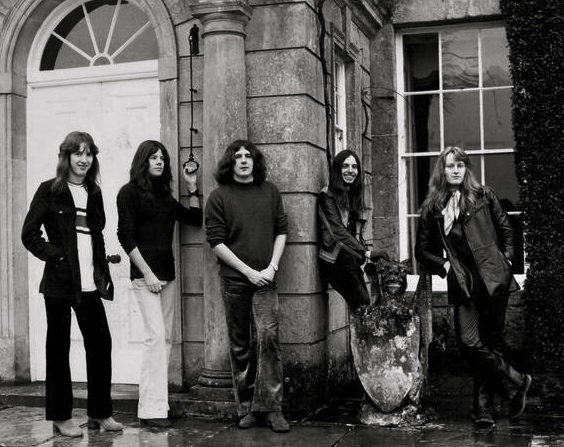
What did you do after Pussy?
After Pussy I was involved on the business side of Ian’s companies for a few years. I used to also do the odd bit of recording, writing and production as well as trying to help younger talent. I did the Gillan/Dean album with Ian’s sister Pauline which was released in 1984. This used 20+ musicians, some well known, and others entirely virgin to recording. Soon after this I was told to stop singing as I had permanent damage in my throat. Since then I have tried to help others with advice and guidance all over the World and also really enjoy Producing from time to time.
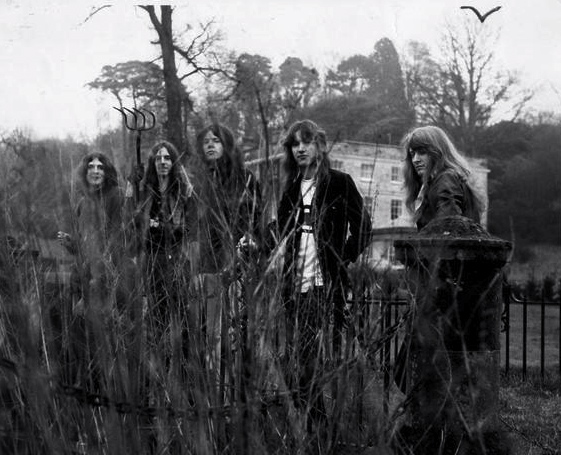
Are you still in contact with other members of Jerusalem?
From time to time, they are still based around Salisbury. My main contact is Ray.
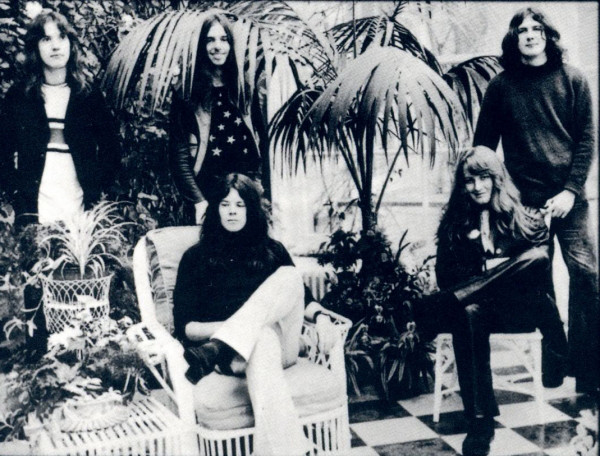
What are your current activities in music?
Organising the reissues of Jerusalem and the first issue of Pussy. Still help and guide young talent wherever I happen to be and Producing. I actually do long distance Producing, where I discuss songs with an artist in depth, they then record wherever they are and then send the files to me for further production and mixing. Good fun and actually works out well sometimes.
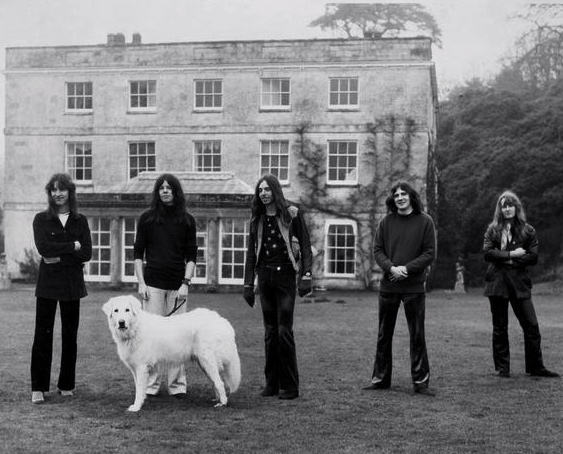
How do you feel about the fact, that young people from other parts of the world are listening to your music?
Think it’s absolutely brilliant, nothing like trying to find the roots of something. Even in my day we used to listen to all the old black blues players from the USA who in actual fact were the foundation for all rock music. It’s also great to see that all the genres of music have reached all parts of the globe now. To me music is a catalyst that has and still does so much in helping to change the world for the better.
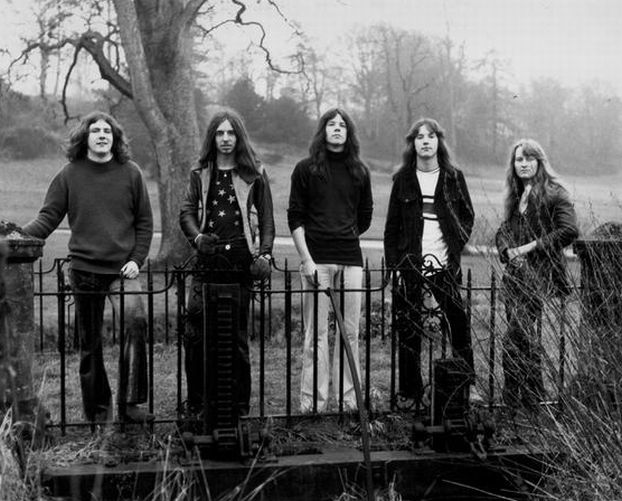
Thank you for your effort. Last word is yours.
Just like to say I very much appreciate your interest and support in trying to expose Jerusalem to all those people out there who still have no idea of its existence. Maybe we never became a huge success at the time, but I think we did help to push the musical boundaries a bit further out, which enabled many other artists later on to push them out even further. Please keep spreading the word. Paul Dean
Klemen Breznikar




I felt that the story was well
Written, excellent questions and
Honest answers..
Drop it spin it and rock n roll
With it! P.D. Is truly inspirational.
Chy…
Very solid interview…you seem to have covered all the bases!
nice post
I went to the Swan School in Salisbury, in fact we were best buddies there for a while.